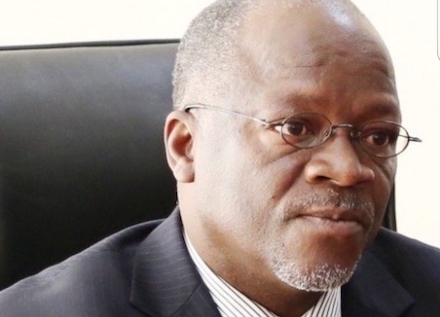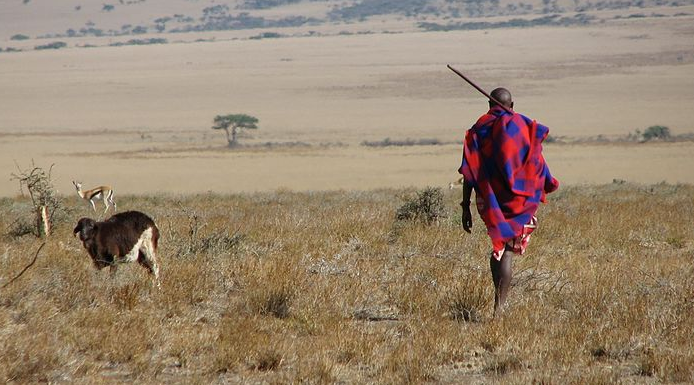The late President Magufuli. Photo: Twitter.
Love him or loathe him, Tanzanian president John Pombe Magufuli who died on March 17 was a long-standing staunch advocate for infrastructural development as a pillar for unlocking economic development for the east African nation.
This could be one of his lasting legacies in the long run even though there is now much focus on his coronavirus downplaying. He also endured heavy criticism for his shrinking of democratic space for his political opponents.
Popularly known as the “Bulldozer,” Magufuli was truly a champion for infrastructural development. He developed notably policies and strategies to strengthen and evolve Tanzania’s key building and transportation infrastructure.
Magufuli died this week after a more than two-week absence from public life that led to speculation about his health. He undertook projects to a higher level unseen in a country which for years struggled with dilapidated infrastructure and appalling building systems. He worked tirelessly for Tanzania to have a fair and balanced business environment.
He wanted to strengthen access to reliable transportation, affordable housing, and modern services. With the support of Chinese companies, he rolled out the construction of a $9 billion 1,591 miles standard gauge railway from Dar-es-Salaam, the commercial capital, to the country’s inland western borders.
He pushed hard for the projects and in July 2016, after his election, he secured a $7.6 billion loan from China to fund the grand scheme. Worried about slow progress of the projects, Magufuli enlisted support from Turkey and Portugal in 2017, to build a $1.1 billion section of the network. He did not hesitate to expose corruption, unblock bottlenecks, and cancel contracts for poor project implementers to bring visibility and fruition to project implementation.
The bulldozer brought a renewed sense of urgency, speed and commitment to ensure effective infrastructural development that sought to accelerate economic development for all key sectors of the Tanzanian economy.
Through the revival of Air Tanzania and other key transportation infrastructure, Magufuli set the tone and laid a strong foundation for advancing the rebuilding and transformation of Tanzania’s economy. His efforts were on track towards the realization of Tanzania’s industrialization goals.
The new Terminal Three project at Julius Nyerere International Airport stands as a hallmark of his extraordinary and enduring impact on infrastructural fortunes of his country.
Magufuli descended hard on non-performers of project initiatives as well as corrupt officials. At one point, he seized the passports of its Indian builders, delaying the construction of a $13 million water treatment process, and he sacked several officials for corruption. These moves won him public support—especially among the poor.
He had his fair share of criticism for dwindling the political and civil rights enshrined in the country’s constitution. A Zimbabwean researcher with the Institute of Security Studies (ISS), Ringisai Chikohomero told the media in the build up to last year’s election that the mixed support of Magufuli pointed to a “dichotomy between bread-and-butter issues and civil liberties,” in the east African country. “Someone will say, if I have food on the table, if I can send my kids to school, if I can go to work, what is this freedom you are talking about?”
He was criticized for his refusal to accept the seriousness of Covid-19 and not taking adequate measures to help protect his people against it.
While authorities said he died of a heart condition, opposition leader Tundu Lissu, claimed his sources had told him Magufuli had coronavirus.
“What should I say? It is poetic justice. President Magufuli defied the world on the struggle against corona,” Lissu said. “He defied science…And what has happened, happened. He went down with corona.”
Many Tanzanians hailed Magufuli for his no–nonsense and anti-corruption drive which won him plaudits despite his heavy handedness on his political opponents. For his followers, he will be remembered for his service to the poor and for his commitment to lift them out of the misery of poverty.
To his critics, Magufuli will be remembered as a dictator who shrunk political and civil liberties.
And, even though he was controversial for his denial of the Covid – 19 pandemic and for autocratic tendencies at the height of his influence, Magufuli will be best remembered for standing his ground in what he believed. He did not hesitate to dance his own song even though no one else danced to it.
His legacy will remain an issue of debate for some time to come.
Sifelani Tsiko a veteran journalist based in Harare, Zimbabwe, can be reached via [email protected]












